[This dispatch comes to you from the middle of Argentina. This was during a stretch about two weeks long in the middle of June. We're currently in Comandante Luis Piedra Buena, getting ready to make our final push towards Ushuaia. More stories to come about what we've been up to lately]
I'm sitting at the table of a little cabaña in a pueblo whose name I can't remember. We only rode 29km today, barely a warmup, but the forecast calls for a stiff wind from the south tomorrow, with a chance of rain, so we decided to stop in our last chance for shelter before a 170km stretch of scrub desert. Not that the landscape's any different here, mostly dirt and thorns, but sufficiently irrigated to support some Willows and Ash that have already shed their leaves for the winter. There are a few streets, fewer stores, and a place for us to stay with a kitchen and a heater. Outside the window,the wind is blowing dust and tumbleweed down the street faster than we can pedal our bikes. We've been drinking maté, the steady sipping and refilling ritual perfectly suited to slow afternoons. Schwan is writing in her journal. I've been studying spanish by reading about a Scotsman whose drunken prognostications helped foil an English invasion of Argentina. We've put in enough kilometers in the past few days that I feel justified with our unplanned rest.
Since getting resupplied by my mom and sister, it feels like we're outfitted for a polar expedition - down jackets, lobster gloves, a stash of chemical hand warmers, alpaca hats and merino helmet liners, sleeping bag, sleeping bag liners, alpaca poncho cum blanket, extra sleeping bag for on top of the blanket. Our bikes have no more places onto which things can be bungeed. But it's most certainly better than freezing our dwindling asses off, which is what we had been doing through the desert nights leading up to Mendoza. It's only to get colder from here. The biggest problem with the cold is not the riding, or even the sleeping now that we're replete with coverings. It's packing up camp in the morning, when frost has crusted the inside of the rainfly and the short days force movement before the sun's rays have crept over the long horizon.
The tent, warmed by our bodies, is the only shelter we have. The endless plains covered in jarilla bushes provide little in the way of windbreaks. Everything that can be done inside the tent is done before exiting its heat island. Schwan makes coffee under the vestibule, wrapped in down, head sticking through a poncho. We sip the brew while still wrapped in our sleeping bags. Stuffing the sleeping bag in its compression sack generates a little warmth so I do that before I lay riding clothes on my lap and steel myself to expose flesh to air. Schwan wears gloves but her toes are always frozen. My hands barely function at baseline, less when frozen, even less when hampered by gloves. So the few tasks I have enough function to do must be accomplished between stretches of coaxing dexterity back to my fingers by putting them down my pants.
It's in these mornings I get a sense behind the looks people give us when we say we're heading for Ushuaia in the depths of winter. But both Schwan and I would take this any day over the sweltering humidity of mainland Mexico or northern South America. The cold might not be comfortable, but jackets and blankets are a lot more portable than air-conditioning, and movement generates its own heat.
The wind comes as forecast, picking up on our first night in the cabaña. At 2am the rains join, thrust through a crack in the window to land on Schwan's face as she sleeps a few feet away. The rain only lasts for a few hours (from what Schwan tells me, I slumber soundly for all but the start of the deluge), but the wind continues for the rest of the next day. It is a good day. Schwan and I read over cups of French Press coffee after 11 and 12 hours of sleep, respectively. I occasionally look up when the wind notes rise to a whoosh, and watch the weeping part of the willow in the side yard stretch horizontal to the north. I return to my book. Later, my Spanish study takes the form of a 19th century Buenos Aires heiress who jilts the arranged affections of an older cousin for the romance of a younger one. General consternation ensues. For my part, I learn that mujeriego means womanizer, and jugador (player) is used the same way in Spanish as it is in English (no odie el jugador odie el juego).
In the afternoon we watch bad tv and then the opening match of the World Cup, which, with a satellite feed, features some delightfully British announcers. Everything is going well until I get ready to take a shower and Kelly pulls the bandages off the burns on my right foot. [At another cabaña, a little more than a week earlier, Schwan and I had been finishing a shower, and when she went to turn the water off, the hot stuck open, sending a stream of scalding water over my foot and leg, melting through my top layers of skin before she could get it off, and I could get my foot out of the way. So since then, we've been dealing with dressing a trifecta of second degree burns, one of which (right foot, extending to my toes) is rather large and gooey. Just one more thing to do before and after riding 50+ mile days. Luckily, our medical kit contains a good amount of fancy wound care supplies.] Now the foot is all swoll up like an inflated rubber glove and warmer than the rest of my leg. Not good. I take a shower and elevate my leg, hoping that the swelling is more from sitting position than a nasty infection.
In the morning the swelling has gone down a little but not all the way and we decide to stay a day longer. We're about 200km in either direction from any real medical care, but at least there's a clinic in this little pueblo. Schwan heads there to see if see can get any antibiotics (our medical kit contains antibiotics for stomach bugs, urinary tract infections, and MRSA, but not for a simple skin infection, lesson learned). She goes with the lady who's owns the cabaña. Guy in wheelchair with second degree burn is likely to cause more hullabaloo than we need, so I stay put. They won't be able to do anything we haven't already done, and our wound care supplies are no doubt better suited than anything they would have on hand, we just need antibiotics. At first, the clinic won't give her anything without seeing me, seeming to prefer to take me hours away to a hospital in their pickup cum ambulance than hand over some Amoxicillin. Schwan returns frustrated. The lady who owns the cabaña, however, understands our predicament and returns 20 mins later with a supply of Amoxicillin.
I spend the day with my foot up on a chair, and that night it looks a little better. Still angry, but better. We leave in the morning heading towards Neuquén. Back into scrub desert and sleeping behind dirt mounds. We keep a close eye on my foot, to our surprise, and delight, it looks slightly better every time we change the dressing. It's the combination of having my leg stretched straight out in front of me and continuous aerobic activity that helps the burn heal much faster than it would at home. It's when the movement stops that things start to look bad.
Two days later, quite unexpectedly, we cross into Patagonia. The morning after sleeping in a little roadside motel owned by the Automobile Club of Argentina, we cross over the Rio Colorado and are confronted by a large sign welcoming our entrance to the Patagonia region. More or less, the whole trip has been leading up to this moment. Whatever else happened, we knew we wanted to make it to Patagonia. I had been riding under the false impression that the demarcation for Patagonia was at the Rio Negro (thanks Chatwin!), another 150km or so to the south. Now, we've rolled into Patagonia and I wouldn't even have noticed if Schwan didn't point out the sign. The shrubs on this side of the river look much the same as the shrubs on the other. We stop to take a picture, then keep on riding.
This is about the time that the traffic turns from annoying to malicious. We are riding down the narrow road, with no shoulder, and a line of traffic coming towards us, when a semi approaches from behind and starts laying on his horn. He doesn't want to slow down and we have no where to go. We keep riding and he slams on his brakes at the last minute, hovering about 3 feet from my back wheels as he waits for the traffic to pass. When it does, he floors it and swerves to the inside, starting about 2 feet from us and then deliberately squeezing in as he passes, whipping his trailer towards us and almost running us right off the road. Schwan flips him off and I would if I could. For the next week or so, first as we approach Neuquén, and then as we head east along Ruta 22, this is to become the norm. There is a ton of traffic, a narrow road with no shoulder, and the drivers are fast, impatient, and downright mean. Three more semi's try to run us off the road, a number of cars buzz us at high speed when nobody else is in the other lane. It's dangerous and f-ing stressful. After 4 or 5 days of this we're ready to pack up and call it a trip if the conditions don't improve. The shoulder is too soft and the drop too large to simply swerve onto when there's traffic behind us. The topper comes when a van slows down to wait to pass us and a cop rear ends him.
In the midst of this stretch from hell, distraction comes in a rather sad package. We have just eaten lunch in a pueblo surrounded by desert and Schwan needs to pee. We ride out of town and find a gravel drive leading to scrubby nowhere. We pull into it. About 20ft away a little dog is flitting between the bushes scrounging for food and there's none to be had. Looking closer, it is a puppy, skin over skeleton, joints looking like they're about to pierce her mottled brown fur. Kelly can't take her eyes off it and immediately starts digging through the food bag for some sandwich cheese. The dog is watching now, she has sweet, fearful eyes, and she shivers violently between every movement. Kelly takes the cheese to her but she keep scurrying away, sheltering behind the thorn brush before Kelly can coax her to a piece of cheddar. Now, she won't stop eating, gobbling up anything put in front of here. Like a concentration camp survivor, I'm afraid that the gorge could kill her.
Of all the street dogs we've seen on this trip, and there have been a lot, this is the skinniest. And with the complete lack of food, water, and shelter, along with sub-freezing nights, no doubt the closest to death. Shivering and skeletal as she is, she probably only has another night or two in her. Kelly is beside herself. Before long, she's rationalizing taking her with us. "Look, she so tiny she can just ride in the bag up front. She'll fit. I can put the food somewhere else..."
I've heard this before, but I've a feeling that this time she means it. I put on my rational voice. "You do realize we can't take her home. We can't take her into Chile, or into hotels. We can't camp every night, what exactly are we going to do with her?"
"We'll figure something out."
This is not really an answer. But I can't bring myself to argue with her, because this dog is too far gone, because we both know that leaving her here is a death sentence. Before I know it, Kelly has our lunch supplies stuffed elsewhere on our bikes and she's hoisted the pup into the reusable grocery bag on her front rack. We start pedaling, and after a few minutes of squirming, the pup settles into the relative warmth of the bag.
Camp is a clearing on the far side of some rail tracks and while we unpack the dog is too cold, too lethargic to move from the bag. Schwan puts her shirt in the bag for more insulation and we go about our business. Dinner is one-pot pasta and the dog finally perks up at the smell of food. We understand: when nutrition and warmth are hard to come by, you can think of little else. Belly full of pasta water, cheese, and bread, she sleeps the night curled on Schwan's shirt under the cover of our vestibule.
By the time we reach the next town, Choele Choel, it's clear that carrying her along any farther just won't do. After 2 days of food and warmth she's already emerging from her lethargy. Riding, she alternates between curled slumber and wriggling discontent. When stopped she is beholden only to food, whether from our snacking or following her nose into the surrounding fields and desert. I can only imagine how difficult she'll be to control when the steady diet rekindles her puppy energy. We roll into town to look for a room and Schwan is already trying to mentally prepare to let her go. "If she jumps off the bike when I'm looking at a room, so be it." She tells me. "We can't watch her every second."
It's true. But I know the thought of letting the pup back into the world of scraping for a meals and finding shelter in the nooks and crannies of random buildings is killing her inside. Of course, the dog stays put when Schwan goes to look at the first room (overpriced), she is not going to make this easy.
We take the pup to another ACA motel and sneak her into the room, lay a blanket by the heater and buy her a small bag of dog food. From here, we are heading back into another long stretch of desert, ever south, into colder temperatures and stronger winds. This motel is set back from the main road, on large grounds with trees and outbuildings, with only one other, well fed, dog. There is a restaurant and a constant flow of travelers for a steady supply of scraps. We decide that this place is about the best chance we can give her. In the morning, we leave her outside, munching on the bag of dog food, and ride away. We tell ourselves that she's better off than when we found her, that we've at least given her a chance to survive. But it feels hollow. While such thoughts might make me feel better with the decision, they have little bearing on her, who will still have to scrape, scrounge, and shiver through the winter. Kelly is crushed. Whatever her brain says, her heart still feels like we could've, should've done more.
We ride back into town, back to our normally scheduled activities, to get some road food at the supermarket. On the way we're flagged down by a bushy-mustached fellow standing in front of his white van, 'Rody and his Keyboard: Music for you.' painted on the side. He is quite excited about my bike, and wants us to stop by his house, to see some sort of articulating front-wheel tricycle that he's built. He's too genuinely excited for us to say no, especially when we only have a 30km day ahead.
20 minutes later, while Kelly's in the grocery store, he pulls up in his van, and delivers me a map to his house, hand drawn on notebook paper, complete with distances, relevant landmarks, and a compass rose.
A few hours later, we see his van parked by a little restaurant and, per his map, pull into his drive. It's a modest, one-level house, tucked behind the restaurant. He comes out and greets us like old friends, introduces us to his son and his son's wife and daughter. Rody is excited about my bicycle, our trip, all the luggage Schwan is carrying, the 3-wheeled contraption he's built...well, Rody is excited about a lot of things. He takes us to the lean-to out back to present the dune buggy he's built, with two wheels up front and one in back. It looks like something out of Mad Max. It looks like a helluva lot of fun and I tell him so. We show him all our gear. Suddenly he gets a spark in his eye. "Do you like music?" he asks.
"Yes" I respond.
"Can I play you some music?"
"That would be fantastic."
Rody shuffles into his house and returns with an old metal stand that he unfolds and settles into the dirt in front of his door. He goes back into the house and this time comes back out with a keyboard. He runs a power line from the house and does some fiddling with the Yamaha, muttering something about not speaking Japanese. "How bout some rock?"
He hits a back beat and starts jamming out the melody for Dire Straight's "Sultans of Swing." He's rocking out, hunched shoulders and head bobbing over the keys. Now he's freestyling lyrics, singing about his new friends who came by bicycle, working the crowd (of two), and giving shout outs to Patagonia. As the wind whips through a stand of birch, we are treated to a three song concert with Dire Straights, an Argentine folk song, and a Spanish cover of "Jailhouse Rock" on the ticket.
After the show we decide to get some lunch with Rody at the little parilla (grill) next to his house. Inside, it's dark and quiet but for the sounds of a World Cup game on the television. We sit at a worn wooden table and the only other patron, a square-jawed man with blond hair and blue eyes, introduces himself in halting English. He's a host for WarmShowers (basically a touring cyclist version of Couchsurfing), and offers us a place to stay when we pass through Puerto Madryn (about a week away). He returns to his table when his fries and fried steak arrives, eats, and on his way out pays for his own meal and ours that we've yet to eat. Such generosity is not uncommon on the road, but it still bewilders us and we can do nothing but be thankful.
We eat enormous, mushy bread sandwiches and talk with Rody. Chile is playing Ecuador on the flat screen and the Chileans look very good. "Look," Rody says. "They should not be that good, their players are not that good, but they play together all year long, they play as a team. It counts for a lot. All our players play in Europe, they never play together, they are not a team."
"But you have Messi." I say. Messi is a diminutive striker from the Argentine pampas, who can often be seen strolling around the pitch with hunched shoulders and a flat expression. He is usually the least impressive physical presence on the pitch, while also being the best player in the world. When he is on ball, the spark is lit, and he dances like the ball is attached to his foot, toying with defenders, seeing the geometry of the field like only a genius can, and pulling entire defenses around with his every feint.
"Yes, yes." Rody waives his hand dismissively. "That helps. But all we have is Messi. Our team is Messi, Messi, and Messi." Rody looks around like he is a Cold War conspirator about to divulge state secrets, then leans towards me and lowers his voice. "Argentina is not going to do anything this World Cup. We are terrible, you will see." He sits back up and says no more.
The waiter, a young man with a neat beard, wearing a synthetic sports shirt, is standing with his arms crossed, watching the game. "How big is the rivalry between Argentina and Chile?" I ask. "Can you root for them?"
"Sure," he says. "For me, I'm not too concerned with the rivalry. But I know a lot of Chileans who live, and travel down here. In other parts of the country, and with the older generations, it means a lot more."
"Why do you think that is?" I ask.
"Well, did you know that Chile supported Britain in the Malvinas (Faulkland Islands) war? There are a lot of grievances." He says.
On cue, the voice of the older generation leans in again. "The Chileans are not all bad." Rody says. "But they are arrogant." He mimes puffing his chest up. "They think they're more important than they are. They forget that San Martín (the general who liberated Argentina, Chile, and Peru from Spanish control) was Argentine."
After lunch we say goodbye to Rody and get back on our bikes. We're off to find a warm bed for the night, enjoying these pleasures of civilization when we can. Tomorrow we head back out into the scrubland, into the great wide nothing. We've made it to Patagonia, but still have a long ways to go.
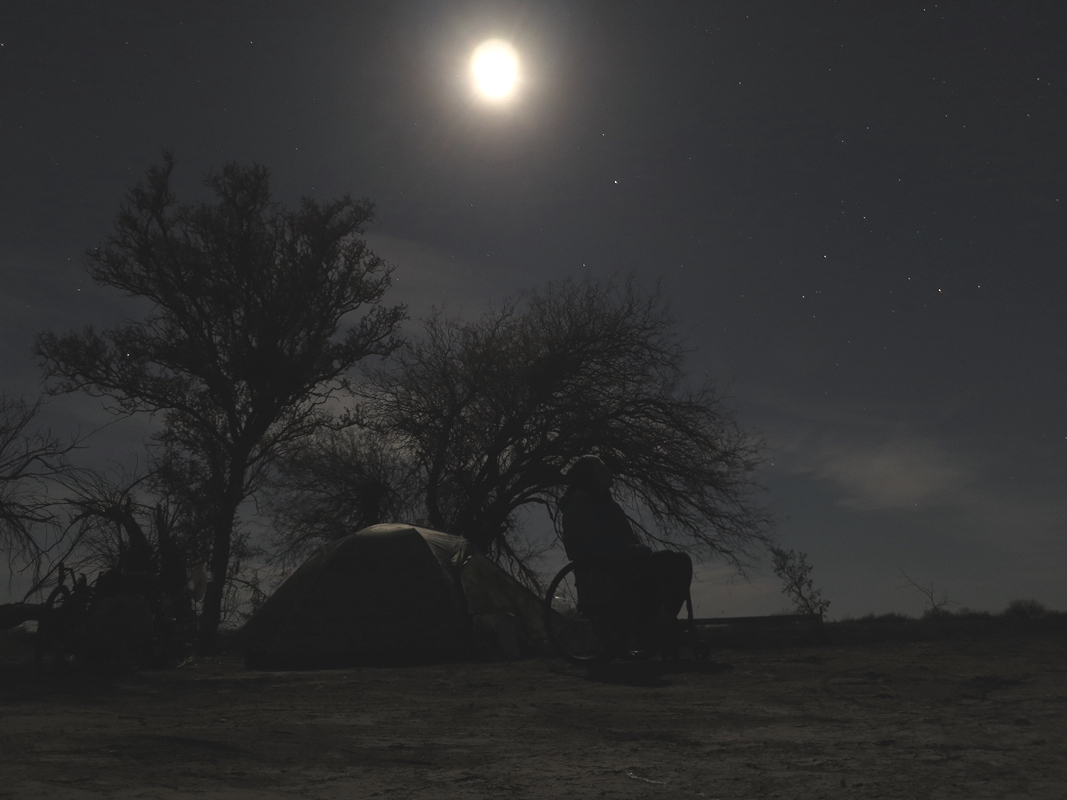
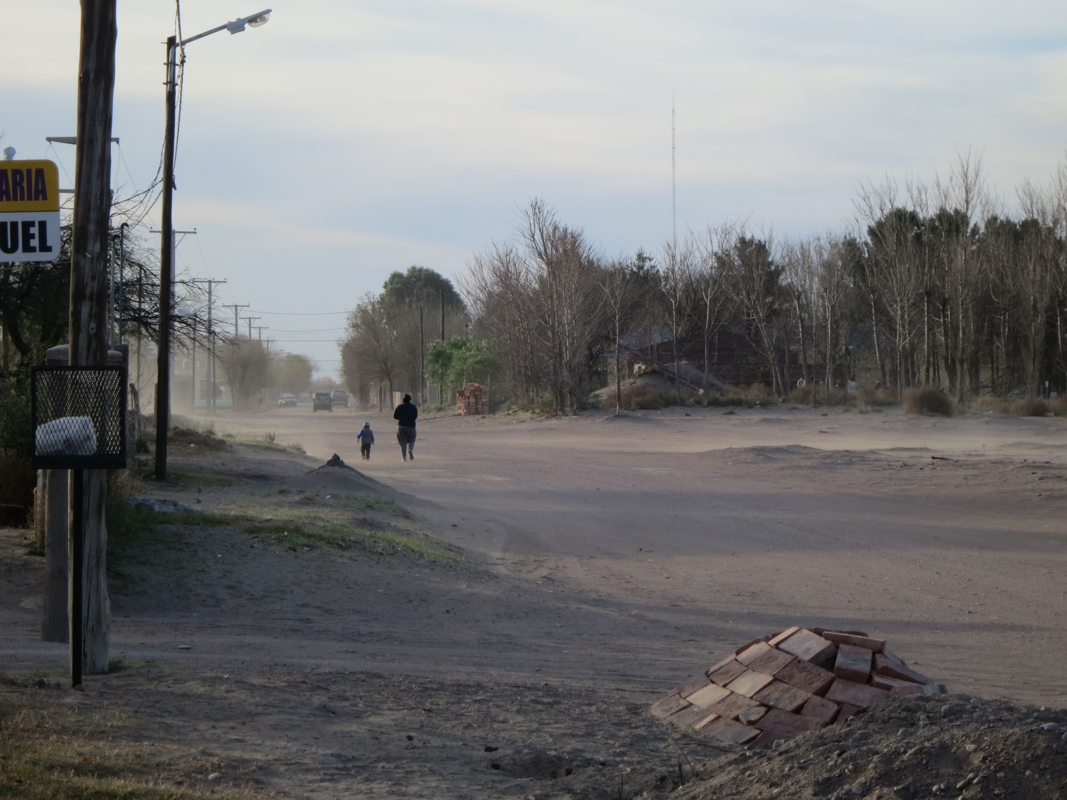
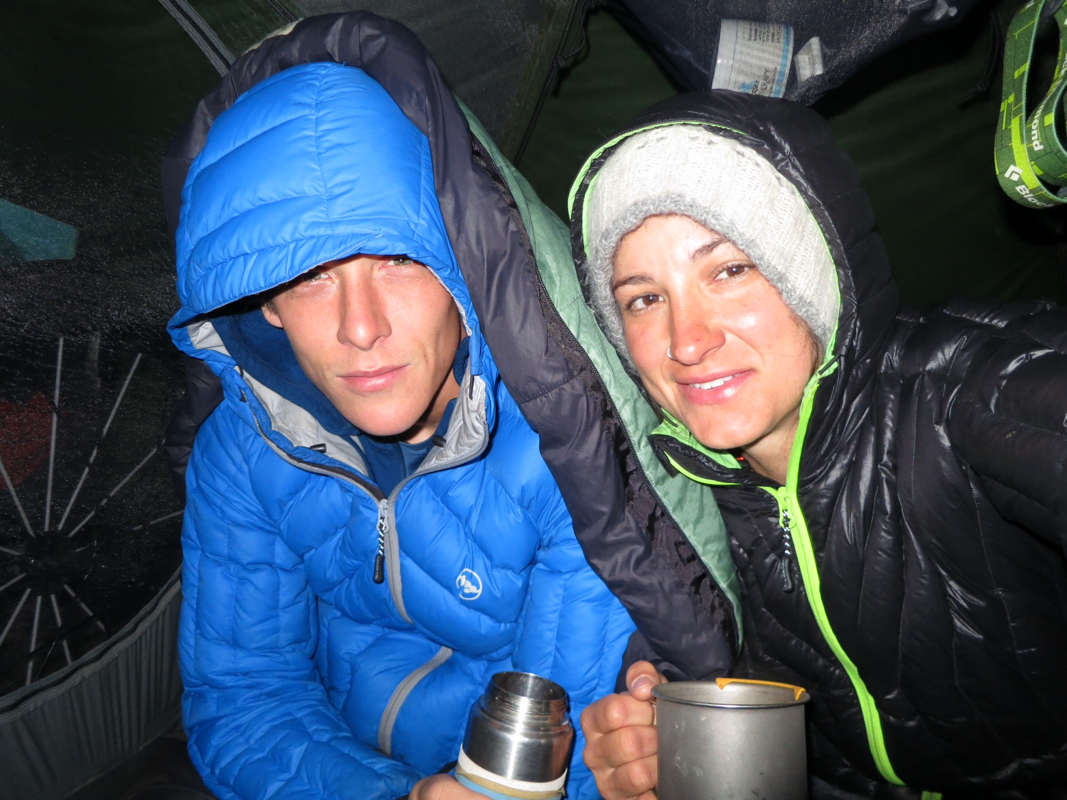
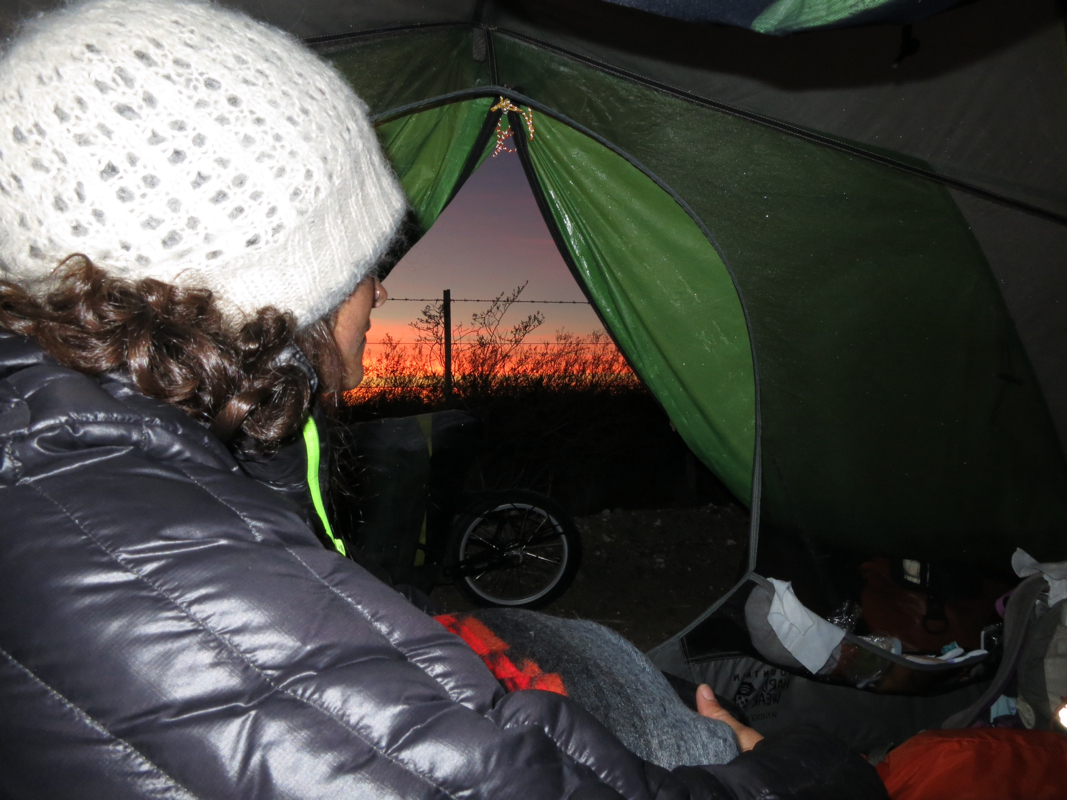
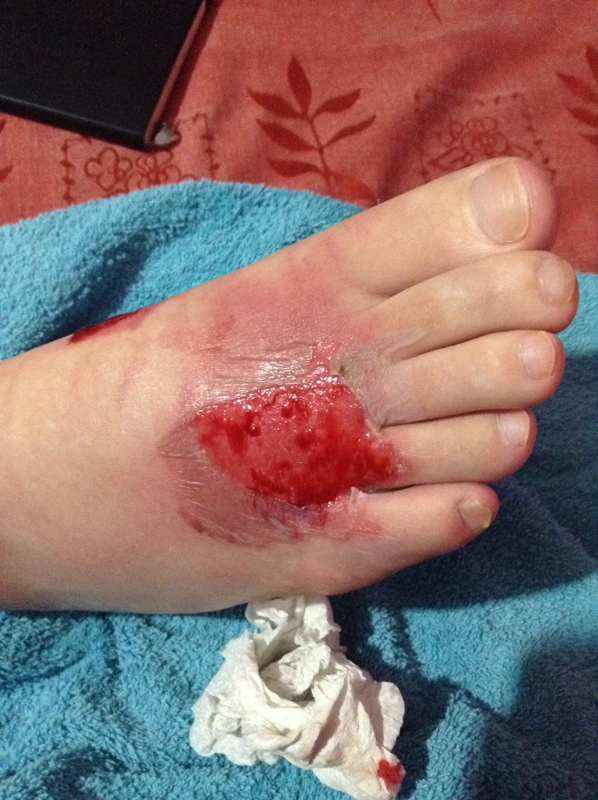
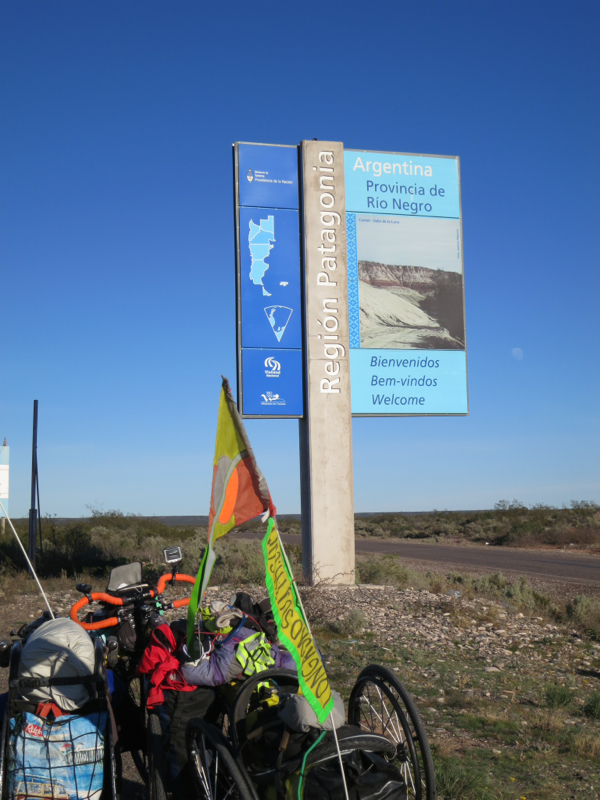
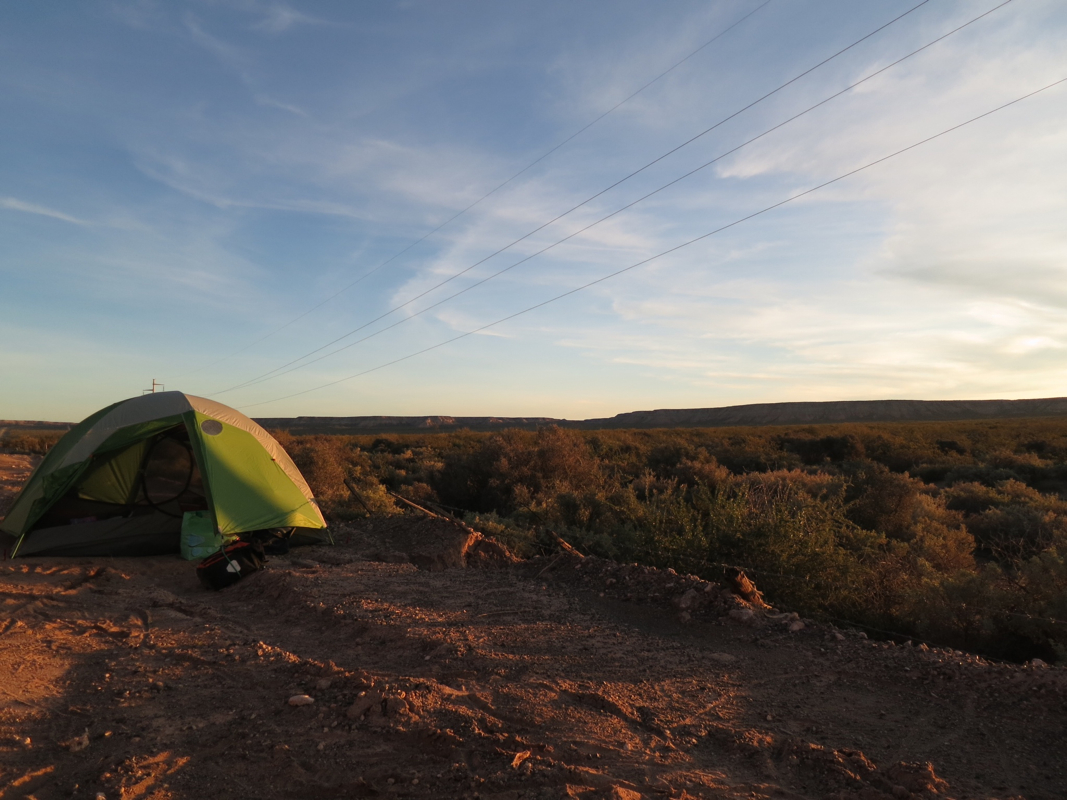
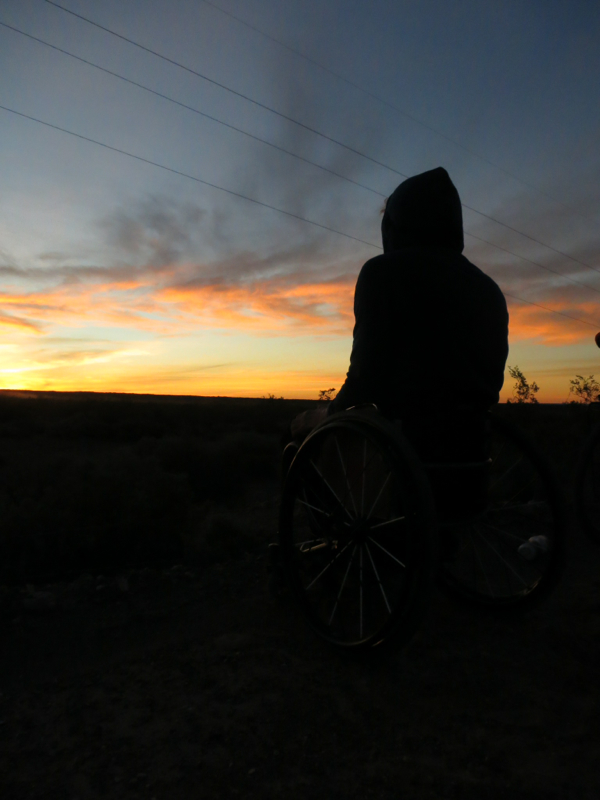
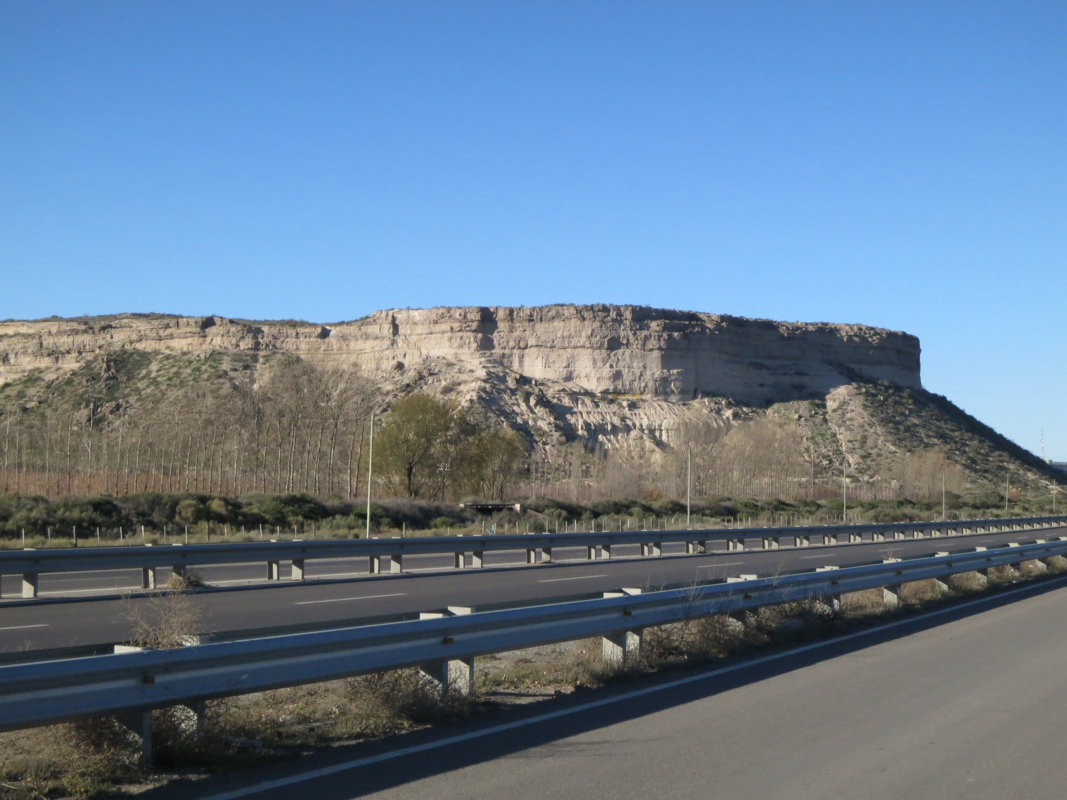
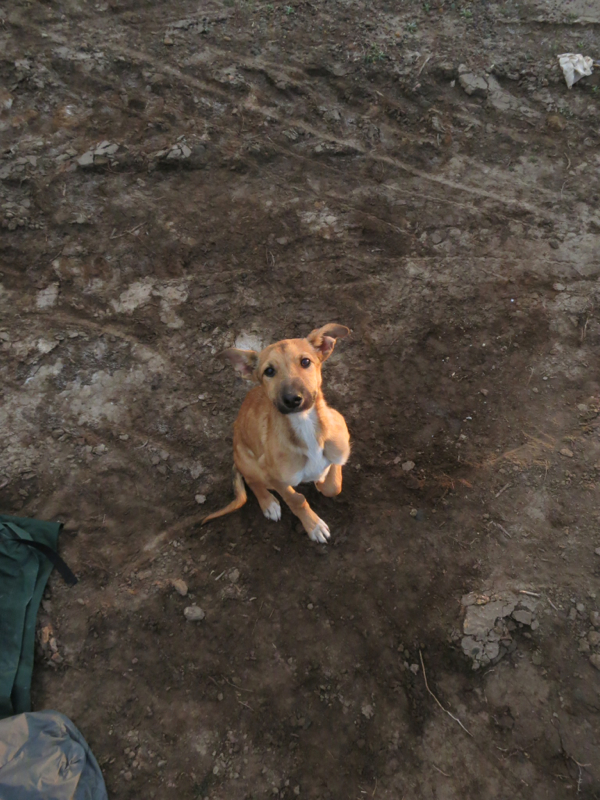
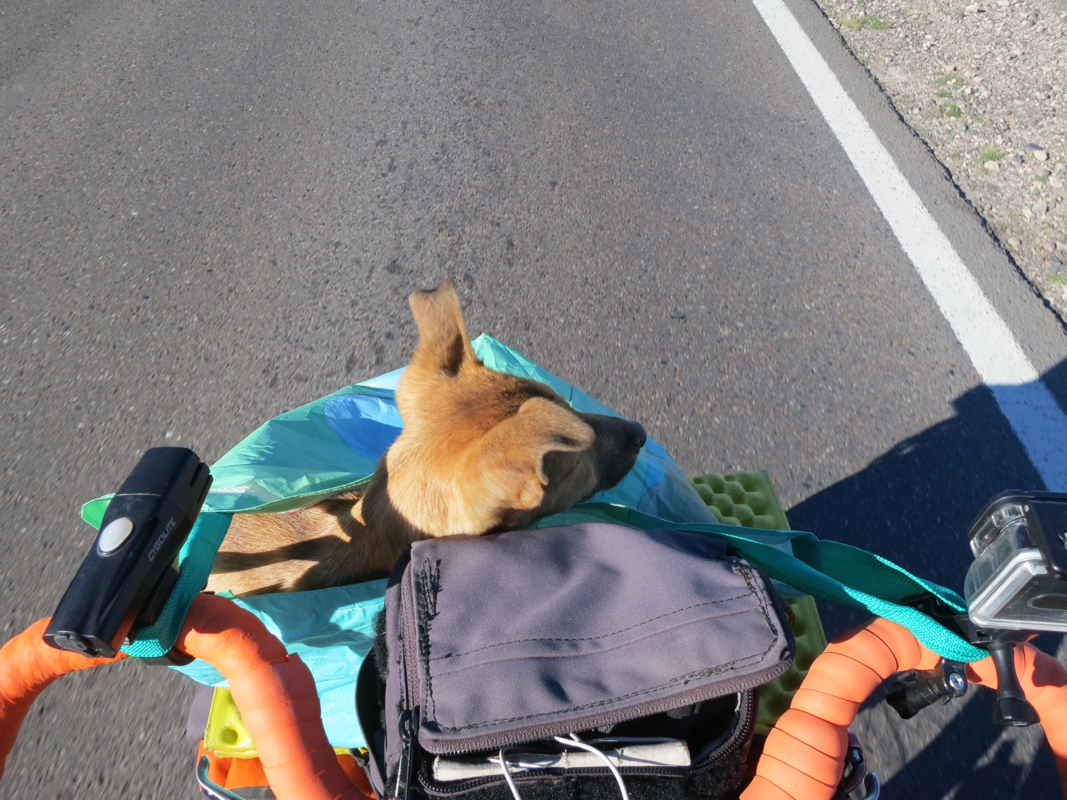
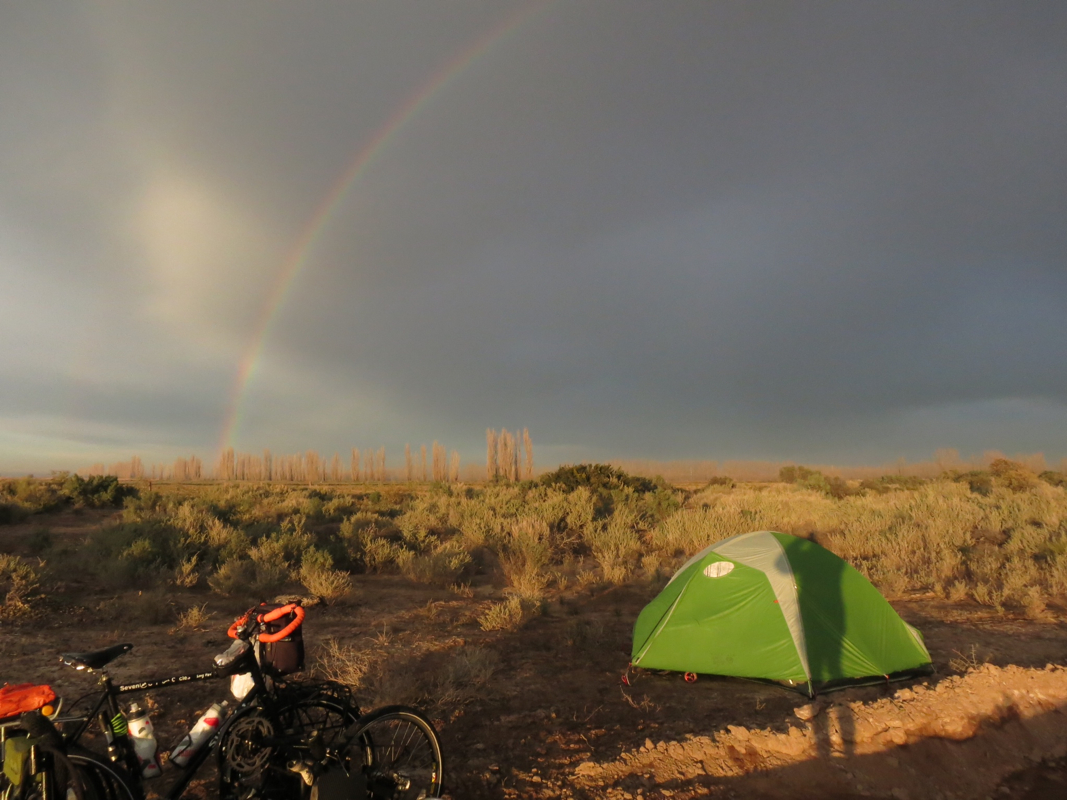
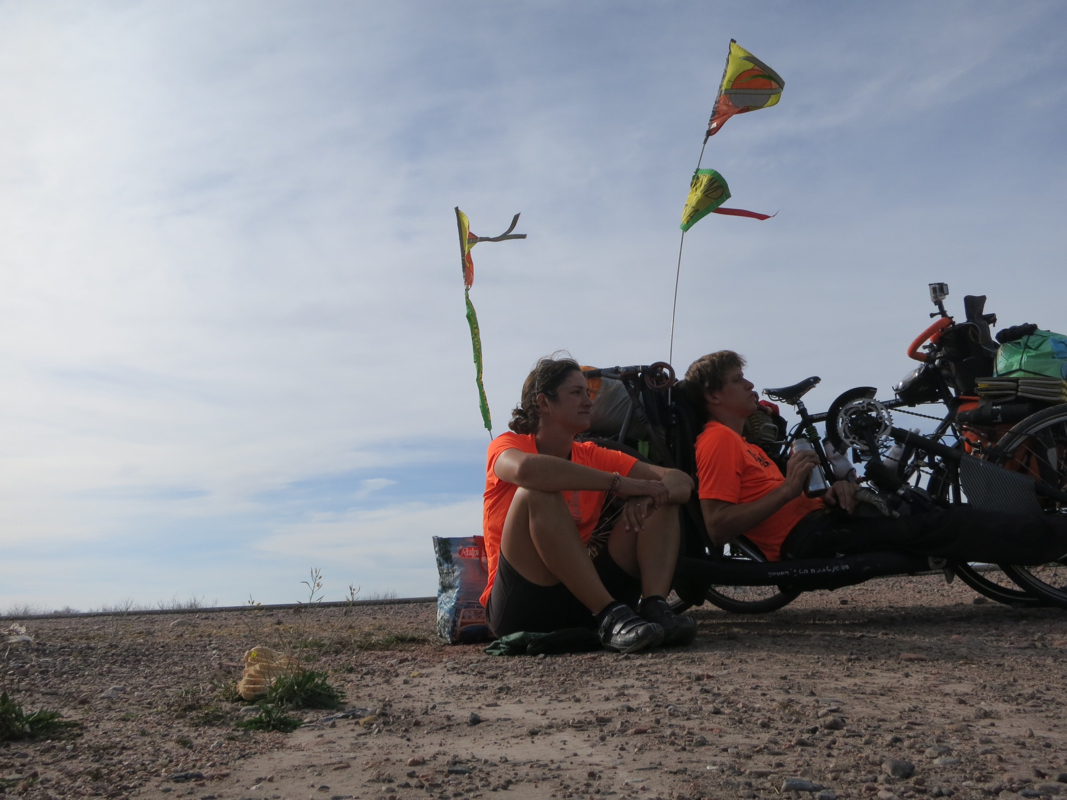
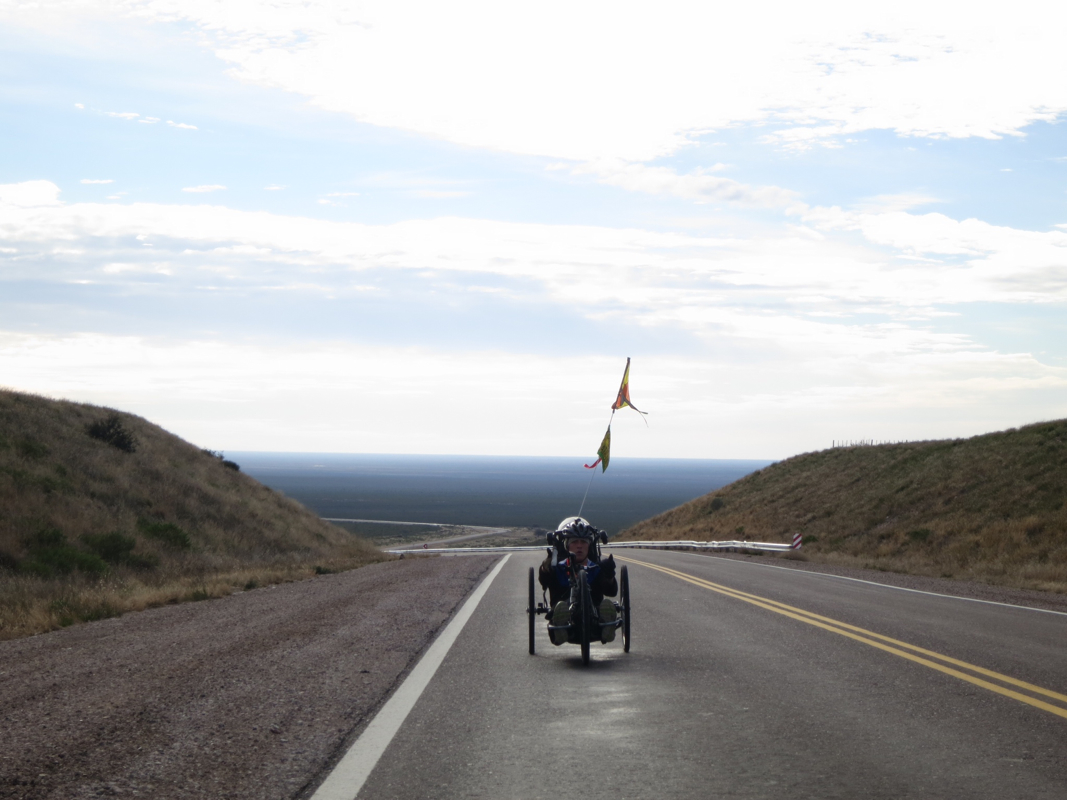
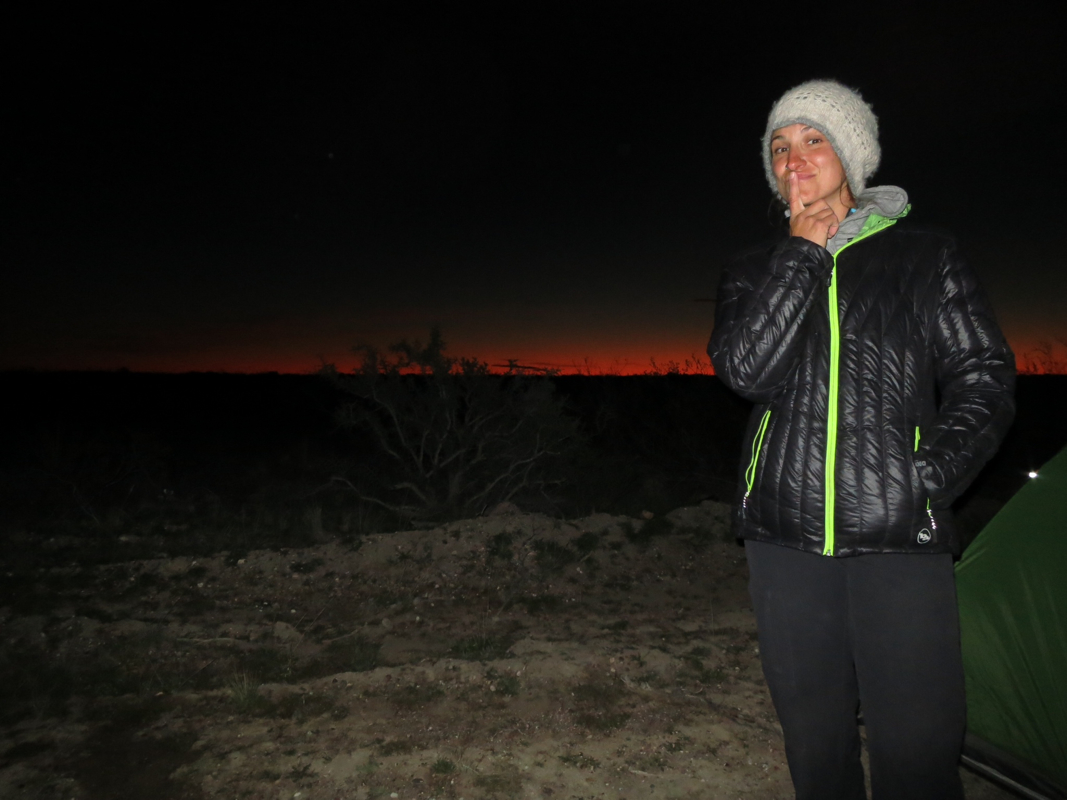
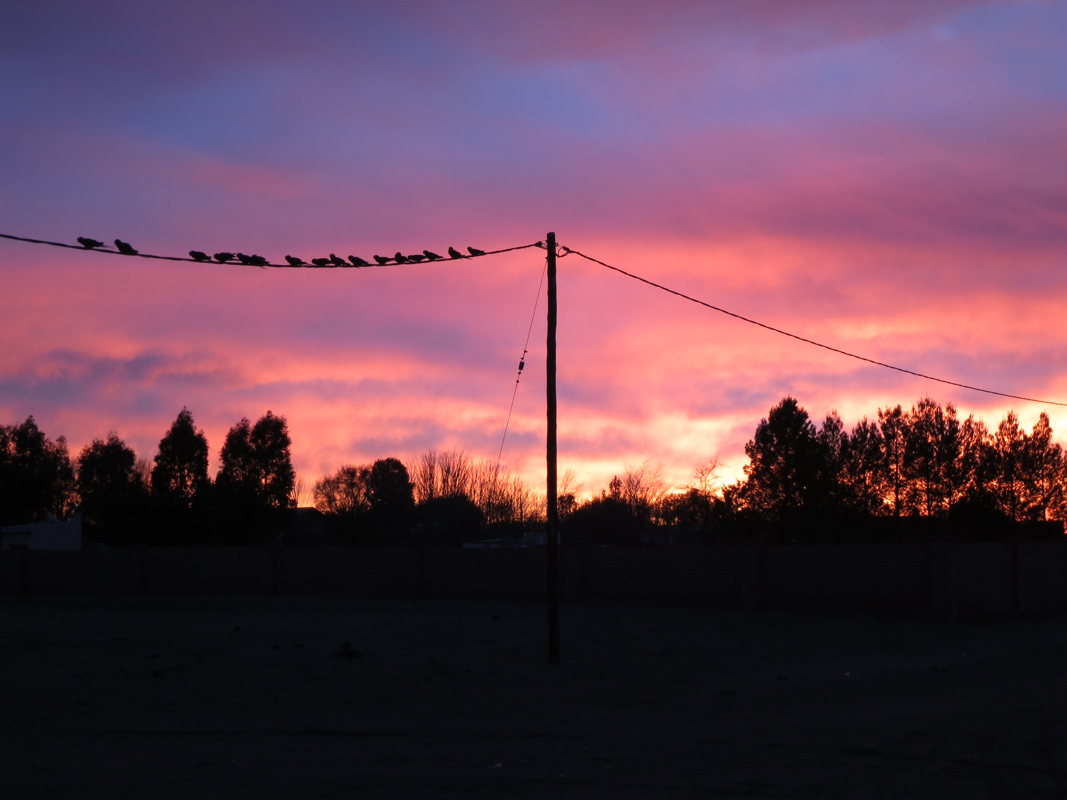
 RSS Feed
RSS Feed